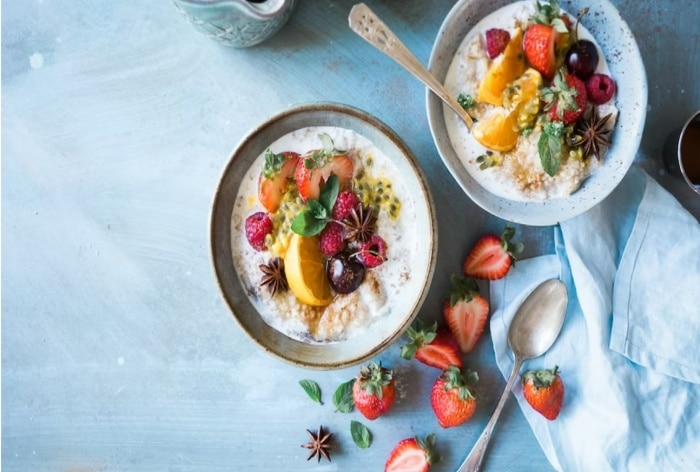Inflammation is body’s natural response to combat foreign invading particles and here is a list of what to eat and what not to eat to fight of the stress.

Maintaining a healthy immune system is of extreme importance. Specially in seasons like monsoon when bacteria, and fungi infection cases are on a rise. Inflammation is a common health problem in this sedentary lifestyle. It is basically the body’s natural process where the white blood cells and immune system shields for foreign bacteria invading the body. Major causes towards inflammation is stress, pollutants, injuries, infections, etc. Stress, infection and chronic disease can put the body in a pro-inflammatory state. Your immune system becomes primed to create a constant inflammatory response, even when there is no obvious attack from outside.
Anti- Inflammatory Foods to Add in Everyday Diet
- Berries are rich source of antioxidants.
- Fatty fish such as salmon and sardines.
- Green leafy vegetables
- Omega 3 fatty acids-Almonds, walnuts, and chia seeds
- Eat lots of fresh fruits and vegetables
- Include green smoothies like Banana with Kale, Banana with Spinach, Apple, carrot, mint coriander in coconut water and flaxseeds is a good option too.
- Have spices like turmeric, ginger, garlic, cinnamon and cayenne pepper in everyday meals.
- Raw vegetable juice can help lower the risk of inflammation too.
- Keep yourself hydrated. You can also add lemon, mint and tulsi leaves for a refreshing detox water drink.
- Eat more calcium-rich food like white pulses, rajma, moong, curd jowar, bajri,
- Include complex carbohydrates like oats, whole grains and whole pulses.
Foods to Avoid For Inflammation
- Processed meat is very unhealthy and can lead to chronic inflammation too.
- Trans fat lie fried foods is bad for health inflammation
- Alcohol
- Refined grains, white bread, whole rice
- High sodium food
- High sugar foods

Don’t Miss Out on the Latest Updates.
Subscribe to Our Newsletter Today!

